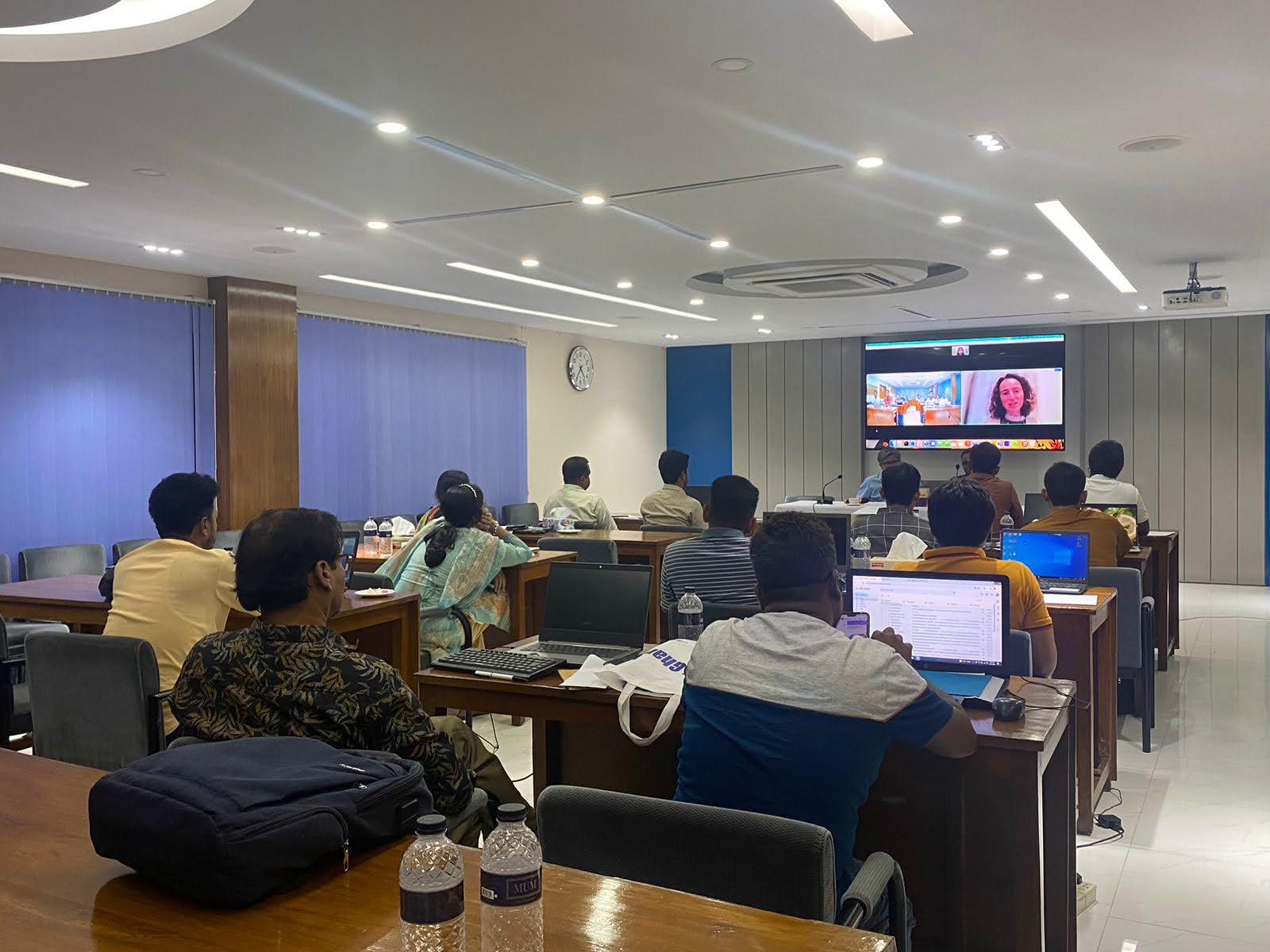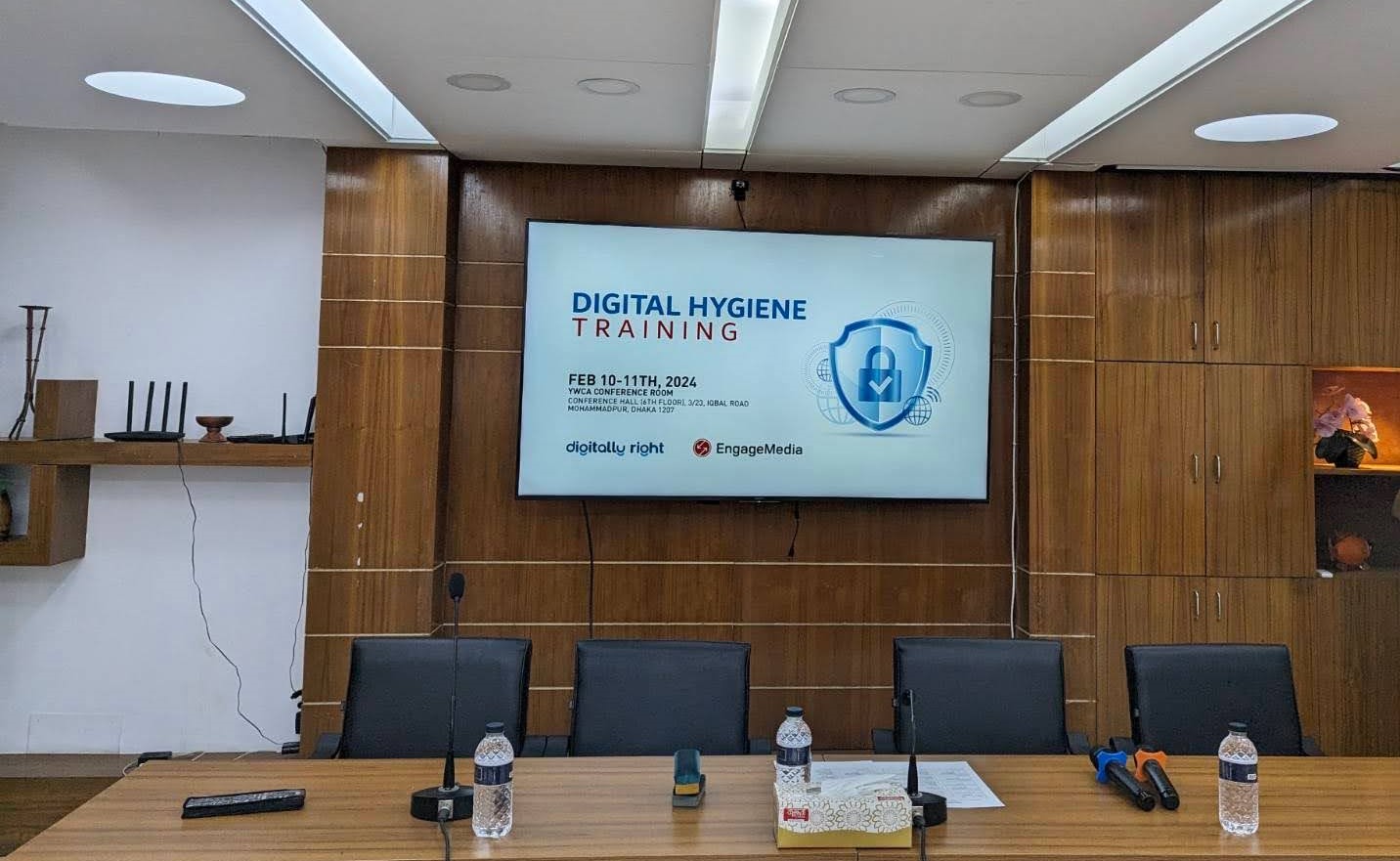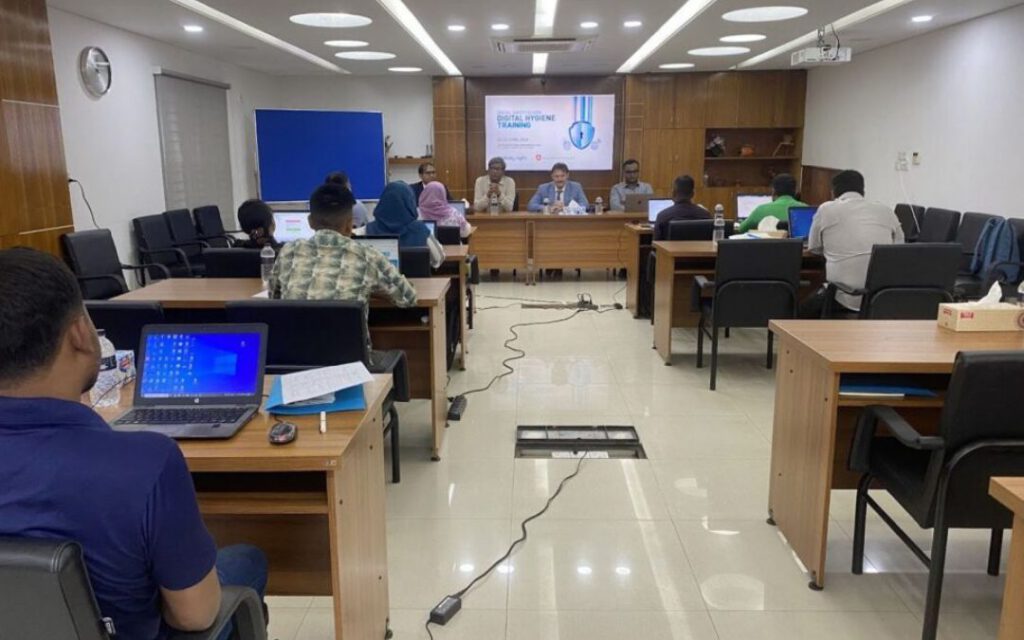As part of the Digital Safety School initiative, Digitally Right hosted two dynamic Digital Hygiene Trainings on June 22-23 and July 13-14, 2024. Co-sponsored by the SWISS Embassy of Dhaka, these sessions empowered participants with essential tools and strategies to enhance their online safety and digital well-being.
The target audience for both trainings was journalists from regional correspondents for news organizations or local news outlets outside of Dhaka. 12 participants from various news and media organizations attended the first training. Of the participants, 3 were female and 9 were male. 10 participants from various news and media organizations attended the second training. There were 3 female and 7 male participants. These training sessions were very pertinent and helpful for the group because they frequently deal with the greatest digital threats, issues, and security risks due to their line of work.
Both trainings followed a similar agenda and discussion topics. The first day began with an ice-breaking session where participants introduced themselves and shared the digital risks or threats they had encountered in their work. They were also asked about which digital safety methods or tools they employ to get a better understanding of their skill level.

After assessing each participant’s risk level and digital security knowledge, the training sessions began with an overview of common digital safety practices. This was followed by a session on online safety, which covered secure browsing techniques and ways to protect social media and internet service accounts. Participants also learned how to safeguard offline information and were introduced to data encryption tools for managing specific risks. In the afternoon, they explored tools for securely storing, transferring, and permanently deleting data, and the final session focused on best practices for capturing photos and videos—crucial skills for field reporters.
On the final day of the first training, two representatives from the SWISS Embassy attended, and participants shared feedback on what they had learned and how they planned to apply it in their work. The second training’s final day began with a recap of the previous day’s topics. Sessions then covered best practices for device and communication security, followed by lessons on identifying and protecting against phishing and malware. A fact-checking expert led the last session, teaching participants how to verify fake images and videos using advanced search and fact-checking tools. The training ended with a summary of key topics and a Q&A session.
Impact of the Training
Journalists face significant digital challenges and security risks, worsened by restrictive laws in the country. Since the inception of Digitally Right’s Digital Safety School it has made an impact in supporting journalists. The initiative aims to hold monthly training sessions for at-risk journalists across Bangladesh, depending on available funding. Candidates apply for each training session, and participants are selected based on these applications. Each training is tailored to the specific needs of the group—for instance, journalists outside Dhaka face greater risks and have fewer resources, so their sessions differ from those for journalists in the capital. In the current context, such training has become essential for journalists nationwide.
When asked about the training, one participant expressed their gratitude and shared, “Journalists who are working outside the Capital inherently are at more risk. Therefore, this training will be highly beneficial. I am very pleased with the training.”

One participant added, “Another colleague of mine had previously attended a digital safety training with Digitally Right and learned the use of the Tella app. While investigating a voting scam he had used the Tella app to take pictures at the polling station and when law enforcement coerced him to show the pictures in his gallery, they could not find anything. This not only saved him from facing severe consequences but he was also able to use the pictures taken using Tella on his story. I have learned a lot from this training myself and hope these learnings help me out in the future the same way it helped my colleague.”

